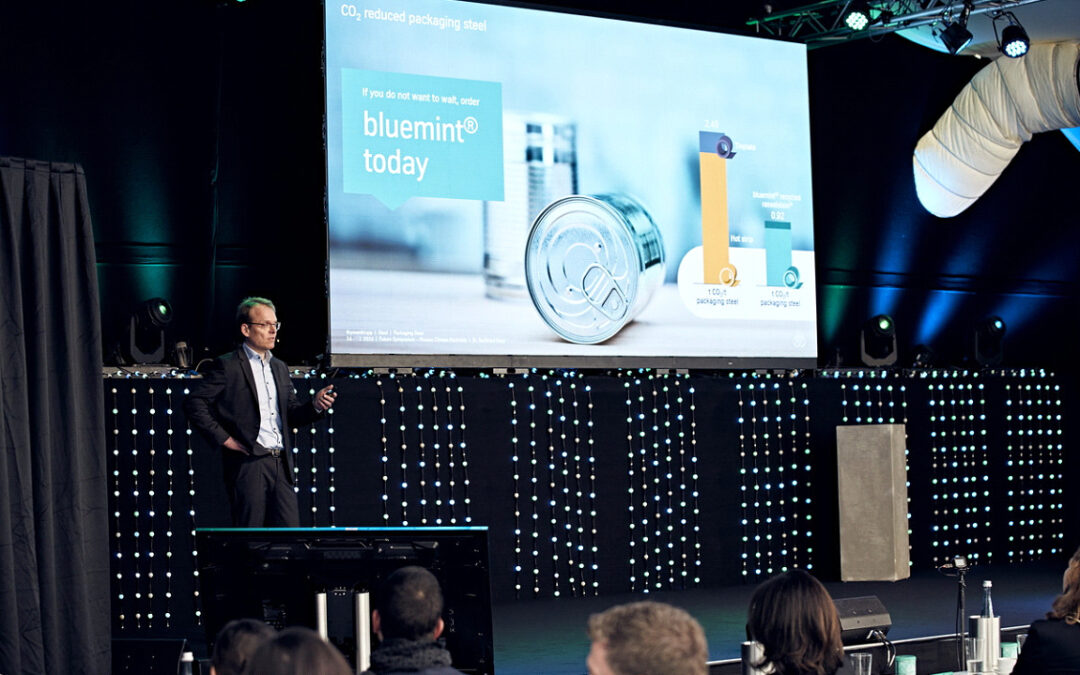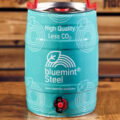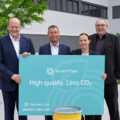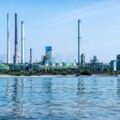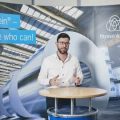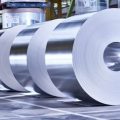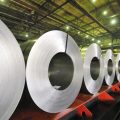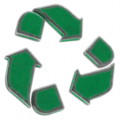The German giant thyssenkrupp Rasselstein held its fifth Symposium, under the theme “The magic of doing it”, with more than 300 participants from 31 countries, both from within and outside the group.
Carmen Ostwald, head of Business Development for bluemint® Steel at thyssenkrupp Steel Europe, said the company aims to reduce its CO₂ emissions by almost a third by 2030, with the goal of producing carbon-neutral steel by 2045. Something that is vital for its customers and the entire industry in general since, as of 2034, EU steelmakers will be responsible for 100% of the costs of their CO₂ emissions.
Thyssenkrupp Steel already counts bluemint® Steel with CO₂ reduction as a path to an emission-free future.
One notable innovation is Kueppers Solutions’ iReku®, the first 3D printed burner with optimized heat recovery. This device can save around 3,000 tons of CO₂ annually in tinplate production.
The German company also has energy-efficient recuperators used in thyssenkrupp Rasselstein’s annealing plants, which reduce natural gas consumption by 10%.
The tinplate manufacturer is also focusing on reducing Scope 1 emissions by substituting natural gas in the production process. Burkhard Kaup from the Transformation team at states that.
“With our new panel coating line, we can save around 1,100 tons of CO₂ per year.”
.
Another measure, such as using electric or biodiesel locomotives to transport material between plants, avoids emissions of 2,000 tons of CO₂ annually.
Kaup adds that the company’s long-term goal is to completely eliminate Scope 1 emissions. As a first step, they are actively investigating alternatives to natural gas. For example, Rasselstein is an industrial partner in two projects funded by the German Federal Ministry of Economics and Climate Protection, exploring the use of hydrogen.
The meeting also showed how optimized packaging steels can significantly reduce CO₂ emissions. By using rasselstein® D&I Solid, the thickness of a two-piece food can is reduced by 7 percent, resulting in a material savings of 5 grams. This reduction translates into a decrease of 12.25 grams of CO₂ per can.
Future Symposium attendees witnessed firsthand another significant investment with the completion of coating line 13 (VA 13), This coating line is the first facility in the world dedicated exclusively to the production of ECCS-RC. VA 13 produces chrome-plated specialty packaging steel using innovative Trivalent Chromium Coating Technology (TCCT®). Absolutely state-of-the-art technology, according to thyssenkrupp Rasselstein.

